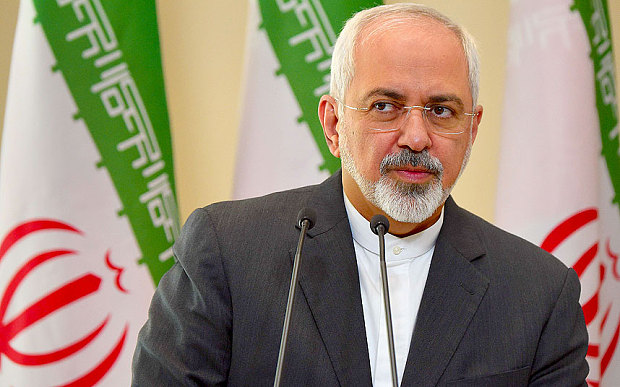How the Republicans Might Have Accidentally Helped Obama Get Closer to a Deal with Iran

Picture by Maxim Malinovsky | AFP/Getty Images

After Israeli Prime Minister Benjamin Netenyahu’s March 3 address to Congress without an invitation from the executive branch, 47 Republican senators circumvented the White House again and penned an open letter to “leaders of the Islamic Republic of Iran.”
But the Republican Senators’ desperate attempt to sabotage the fragile nuclear negotiations with Iran could actually backfire and help the Obama administration achieve a deal much sooner.
The letter, drafted by Senator Tom Cotton (R-AR), warned Iran that any deal the Obama administration makes, without congressional approval, could be repealed if a Republican administration gained control of the White House when President Barack Obama leaves in January 2017.
The senators further explained that, should the Obama administration attempt to make the deal an official treaty (requiring Senate ratification) rather than an executive agreement, this Republican-controlled Senate would not support it unless they were included in the negotiation process.
However, executive agreements have long been the preferred method for foreign policy agreements since treaties are difficult to ratify. More than 50 percent of international agreements from 1839 to 1889 were executive agreements; that number reached 94 percent from 1939 to 1989, according to a 2009 University of Michigan study. For this president, they have become a special refuge given Congressional efforts by Republicans to restrict his ability to act in both foreign and domestic affairs.
Moreover, there are several reasons why both the Iranian negotiators and the Obama administration might actually prefer an executive agreement over a treaty. Treaties are considered as binding as the U.S. Constitution. If the United States were to break any of its treaties, it would likely face serious repercussions from its allies and treaty partners. Treaties also typically last longer than executive agreements.
In the current negotiations, the U.S. is seeking a 10–15 year deal with Iran, which could then be assessed and re-negotiated. A binding treaty may not offer this flexibility and thus isn’t necessarily Obama’s preferred option, even if he had a Senate that would cooperate with him.
Perhaps most important, Obama doesn’t need Congress to implement his executive agreement. He can use his executive authority to relieve many of the sanctions for up to two years and instruct the U.S. to approve U.N. resolutions easing international sanctions on Iran.
Since the publication of this letter on March 9, the media has been rife with angry reactions from Democrats, a few possibly contrite Republicans, and several GOP aides who think some people just can’t take a joke. The main practical concern is that this letter could seriously damage the hard-fought nuclear negotiations—which are especially important now given Iran’s role against ISIS in the Middle East.
Republicans Might Have Unwittingly Helped Obama
Although this letter is a distasteful—to say the least—case of political brinksmanship that damages U.S. credibility abroad, it might actually encourage Iran to make a deal with the United States before Obama’s tenure is over.
The Republicans have made it clear they are not interested in negotiating with Iran, or if they do they will take a much harder stance than Obama. They have also made it clear that no treaty will be ratified by this Senate, at least not one as beneficial to Iran as the options currently being discussed.
On-going anti-Iran vitriol from Republicans will also encourage Iran to negotiate faster, argues Daniel Drezner, professor of international politics at Tufts University.
Iran has a lot to lose if it walks away from the table now. It will not get the sanctions relief it desperately wants and needs, and it could even incur further sanctions. The Iranian leadership will also have to worry about increased security threats from Israel or the United States. This letter only amplifies Iranian officials’ fear that a “better” deal might not come their way if Republicans win the presidency and/or retain control of Congress. The letter was quick to point out that many of the Republicans will still be in office after Obama leaves.
While intended to scare Iran off, this letter might very well push the Iranian regime faster and further into a deal with the U.S. The best chance this executive agreement stands, given the threats the Republicans have levied against it, would be if it is signed and sealed promptly, to give it as much time as possible to develop and yield positive results for the United States and Iran.
Ilan Goldenberg, a former Obama Pentagon and State Department official currently at the Center for a New American Security, explained: “By the time any president goes to Congress for final removal of the sanctions, an agreement will be so far along in implementation and the whole world will be so committed to the process that it will be very hard for any Congress to sabotage it.”
This could make it much harder for Republicans, even if they win the presidency in 2016, to build the momentum needed to undo such an agreement.
Roma is a second year M.A. student in International Relations. She is interested in traditional and non-traditional international security issues, the Middle East, ethnic and religious pluralism, and conflict mediation. Her past experience in related fields includes work with the Council on Foreign Relations, Congress, conflict mediation programs, newspaper and radio news outlets, and think tanks. She is currently interning at the Carnegie Council’s journal Ethics and International Affairs and attempting to write a thesis on ethnic minorities and security in Iran.






